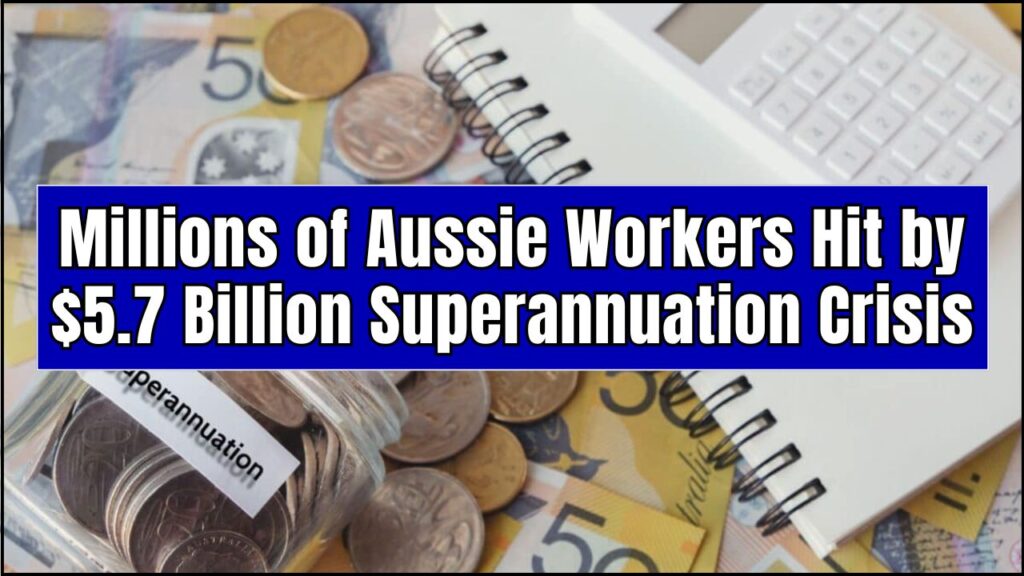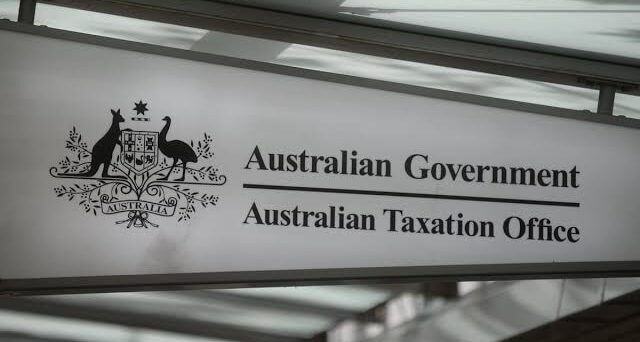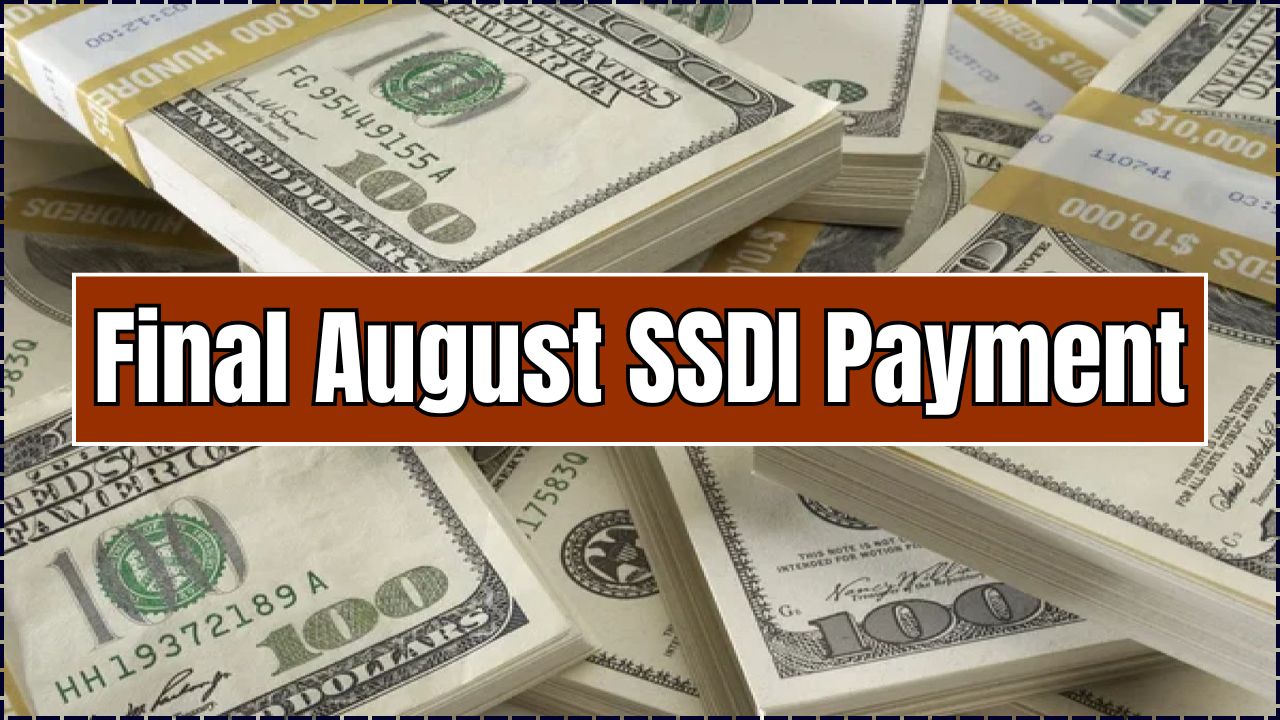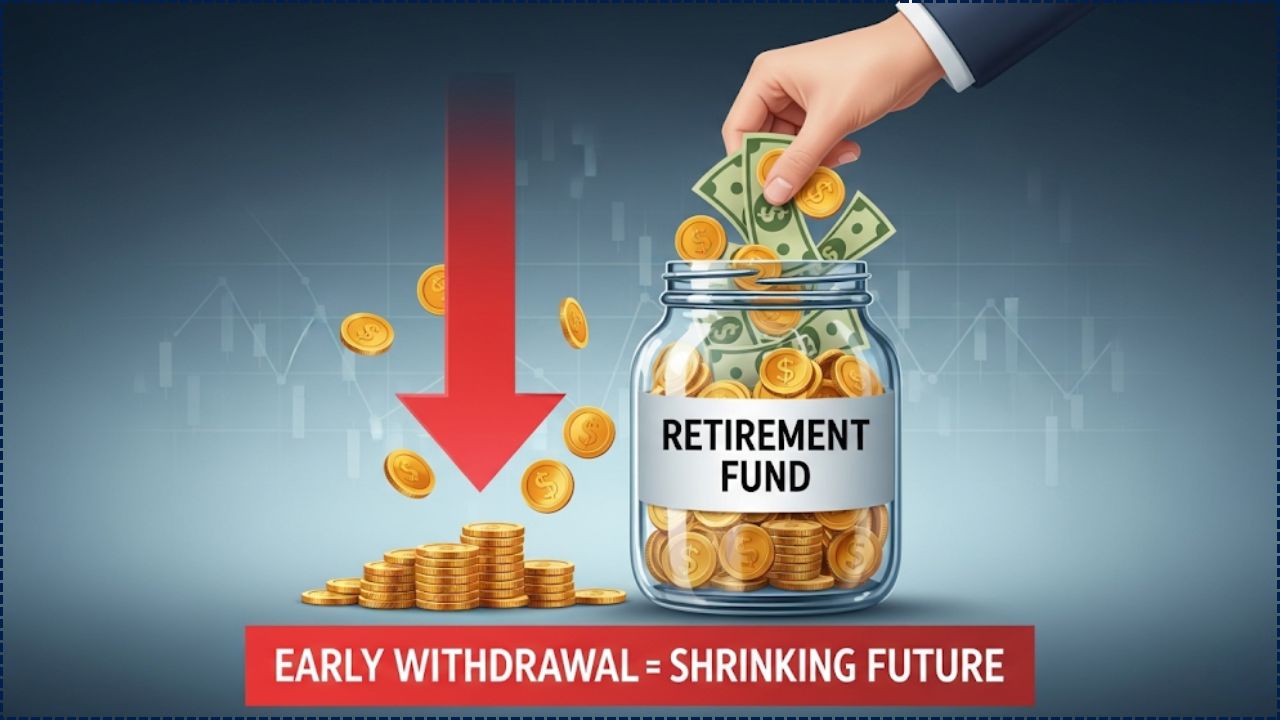Australia is currently facing a major superannuation crisis, with millions of workers across the country losing out on a staggering $5.7 billion in unpaid super contributions. This issue has become a significant financial burden for workers, especially for those in lower-paying jobs, women, and younger employees. In fact, recent reports have shown that approximately 3.3 million Australians are affected by this unpaid superannuation, and it has left many workers scrambling to make up for lost retirement savings. As this crisis continues to unfold, it’s essential to understand its implications and what steps can be taken to protect your future.

In this article, we’ll break down the superannuation crisis in simple terms, provide actionable advice on how to safeguard your retirement, and help you stay informed about the ongoing developments. Whether you’re a professional, a student, or someone who just wants to make sure you’re not losing out on your super, this guide is here to give you the information you need.
$5.7 Billion Superannuation Crisis
| Topic | Details |
|---|---|
| Amount of Unpaid Super | $5.7 billion lost in unpaid superannuation for 3.3 million workers in 2022-2023. |
| Impacted Groups | Lower-paid workers, women, and younger employees are most affected. |
| Government Action | Payday super reforms planned for July 2026, requiring super to be paid with wages. |
| Tax Office Efforts | ATO has recovered only 17% of the $4.7 billion in unpaid super. |
| What You Can Do | Check superannuation statements, report discrepancies, support payday super reforms, and consult advisors. |
The unpaid superannuation crisis in Australia is a serious issue that affects millions of workers, particularly those in low-paying jobs, women, and younger employees. With billions of dollars in unpaid super, it’s essential to be proactive in ensuring that your retirement savings are secure. By regularly checking your superannuation statements, reporting discrepancies to the ATO, supporting payday super reforms, and consulting a financial advisor, you can protect your financial future and ensure that you’re not left behind when it comes to retirement savings.
As the government moves toward implementing reforms, it’s crucial that workers remain vigilant and continue to advocate for stronger protections. Remember, your superannuation is your money – don’t let anyone take it from you!
Understanding the Superannuation Crisis in Australia
Superannuation (super) is Australia’s system for saving for retirement. It’s a type of pension where employers are legally required to set aside a percentage of a worker’s salary into a super fund. In 2022-2023, it was revealed that millions of workers were being shortchanged by their employers, resulting in a $5.7 billion loss in unpaid superannuation contributions.
To put things into perspective, that’s roughly $1,730 per worker who was affected. This massive shortfall is especially problematic for those in low-paying jobs, women, and younger workers. These groups often miss out on contributions, which adds up over time and significantly impacts their retirement savings.
Now, you might be wondering, “Why is this happening?” There are a few key reasons:
- Underpayment: Employers fail to pay the correct amount of super for their workers.
- Exclusion: Some workers, especially part-time or casual employees, are excluded from super contributions altogether.
- Poor Enforcement: Although the Australian Taxation Office (ATO) is tasked with recovering unpaid super, their efforts have been slow, and only a small portion has been recovered.

Real-Life Case Study: How One Worker Was Affected
Let’s take the example of Sarah, a 29-year-old retail worker from Melbourne. For years, Sarah noticed that her superannuation balance wasn’t growing as much as it should have been. She finally checked her statements and discovered that she was missing thousands of dollars in super contributions. After reporting the issue to the ATO, Sarah learned that her employer had failed to pay the correct superannuation for over two years.
Sarah’s situation is far from unique. According to the ATO, thousands of workers like her are being shortchanged on their retirement savings, creating serious long-term financial challenges. Without quick action, this will leave many workers struggling when it comes time to retire.
Why It Matters to You
Superannuation is meant to provide you with financial security in your retirement, but if you’re not getting the super you’re owed, it means you’ll have less to live on once you stop working. Over time, this can snowball into a major issue. Imagine missing out on that extra money each year – that’s real money that could have been growing in your super account, potentially earning you more in the long run.
It’s not just a personal issue either; it’s a systemic one. Workers in certain industries, particularly those who are low-paid or in casual employment, are at the greatest risk. Women, who tend to have lower lifetime earnings than men, are disproportionately impacted by these shortfalls. This creates a cycle where some workers are effectively denied the opportunity to build up enough super to retire comfortably.
What’s Being Done to Address the Crisis?
In response to the unpaid superannuation crisis, the Australian government has committed to introducing “payday super” reforms. These reforms aim to ensure that super contributions are made at the same time as wages are paid, rather than at the end of a pay cycle. The goal is to make it easier for workers to track their super contributions and reduce the chances of underpayment.
The “payday super” changes are expected to take effect by July 1, 2026. However, it’s important to note that while the reforms are a step in the right direction, the legislation has not yet been fully introduced to Parliament, and there are concerns about potential delays.
Steps to Take Now
If you’re one of the many workers affected by this superannuation crisis, there are steps you can take to ensure that you’re getting the super contributions you’re owed:
1. Check Your Superannuation Statements Regularly
The first step in protecting your super is to make sure that it’s being paid. Keep an eye on your superannuation statements, which you should receive from your super fund at least once a year. These statements will tell you whether your employer has paid the correct amount of super into your account. If you notice any discrepancies, it’s crucial to address them right away.
2. Report Any Discrepancies to the ATO
If you spot any issues with your superannuation payments, don’t just brush them off. Report the issue to the ATO, which has a dedicated team that deals with unpaid super. The ATO can investigate and help recover the missing payments. The ATO has even set up a special hotline for workers to report unpaid super.
3. Support Payday Super Reforms
As mentioned earlier, payday super reforms are on the horizon. You can show your support for these reforms by advocating for them through your local representatives or participating in public consultations. The sooner these reforms are implemented, the better it will be for workers like you, who are trying to safeguard their retirement savings.
4. Consult a Financial Advisor
If you’re concerned about how unpaid super could impact your future, consider speaking with a financial advisor. They can provide you with a roadmap for building a more secure retirement, even if your super contributions have been inconsistent in the past. A financial advisor can also help you figure out other ways to build up your retirement savings outside of superannuation, such as investing in stocks, bonds, or real estate.
Maximizing Your Superannuation Contributions
While it’s crucial to ensure your employer is paying the correct super, there are additional steps you can take to boost your retirement savings:
- Salary Sacrifice: If you’re able to, consider a salary sacrifice arrangement where you contribute more of your pre-tax income into your super. This can reduce your taxable income and increase your super balance.
- Voluntary Contributions: You can also make additional contributions to your super voluntarily. This is especially helpful if you want to make up for any shortfalls in previous years.
FAQs
What is Superannuation?
Superannuation is a retirement savings system in Australia where employers are required by law to contribute a portion of their employees’ earnings into a super fund.
How Do I Know If My Employer Is Paying Super?
Check your superannuation statements to see if your employer has been contributing the required percentage of your earnings into your super fund. If you don’t receive a statement, you should contact your super fund and ask for one.
How Can I Report Unpaid Super?
You can report unpaid super to the Australian Taxation Office (ATO) through their official website or by calling their Superannuation Guarantee hotline.
What Happens if I Don’t Get Paid My Super?
If your employer fails to pay your super, you could be losing out on significant retirement savings. It’s important to take action by reporting the issue to the ATO, which can investigate and help recover the missing super contributions.
When Will Payday Super Reforms Be Implemented?
The planned payday super reforms are set to begin on July 1, 2026. However, there are still concerns about delays in passing the necessary legislation.












